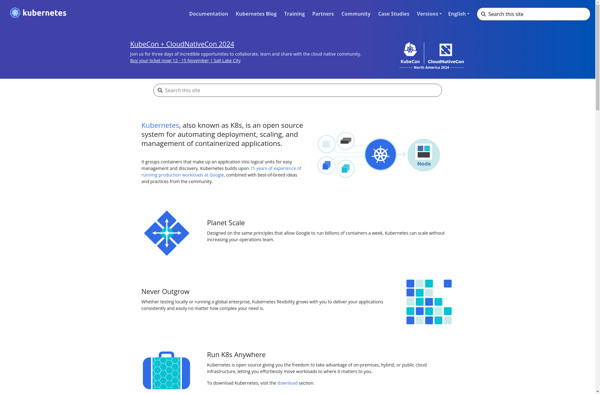Last.Backend
Last.Backend: Open-Source PaaS for Containerized Applications
Last.Backend is an open-source platform as a service (PaaS) that makes it easier to deploy, scale, and manage containerized applications. It handles cluster management, resource scheduling, service discovery, load balancing, secret management, and more.
What is Last.Backend?
Last.Backend is an open-source platform as a service (PaaS) designed specifically for containers and Kubernetes. It aims to simplify the deployment and management of containerized workloads in a Kubernetes cluster.
Some key features of Last.Backend include:
- Automated deployment pipeline - it provides a GitOps workflow to build container images, push them to a registry, and deploy applications to Kubernetes.
- Service discovery and routing - it automatically assigns DNS names to services and handles routing and load balancing.
- Scaling and auto healing - it can automatically scale application instances up and down based on demand and restart failed containers.
- Secret management - secure storage and injection of sensitive configuration data such as passwords and API keys.
- Monitoring and logging - it integrates with Prometheus and Loki for monitoring metrics and logs.
- CLI and web UI - users can manage apps and clusters via Last.Backend CLI or the web dashboard.
Last.Backend aims to simplify many complex aspects of running containerized apps. Its modular architecture also makes it extensible to support custom workflows and integrations.
Last.Backend Features
Features
- Automated cluster management
- Service discovery and load balancing
- Resource scheduling and optimization
- Secret management
- Built-in monitoring and logging
- CLI and UI for managing applications
- Support for Kubernetes concepts like Deployments, Services, etc
- Horizontal autoscaling of applications
- Can deploy to multiple cloud providers and on-prem clusters
Pricing
- Open Source
Pros
Cons
Official Links
Reviews & Ratings
Login to ReviewThe Best Last.Backend Alternatives
Top Development and Container Management and other similar apps like Last.Backend
Here are some alternatives to Last.Backend:
Suggest an alternative ❐Amazon Web Services

Microsoft Azure

DigitalOcean

Kubernetes

Amazon Lightsail

OnWorks

OpenShift

Heroku

PythonAnywhere

Google App Engine

Google Compute Engine

Cloudways
